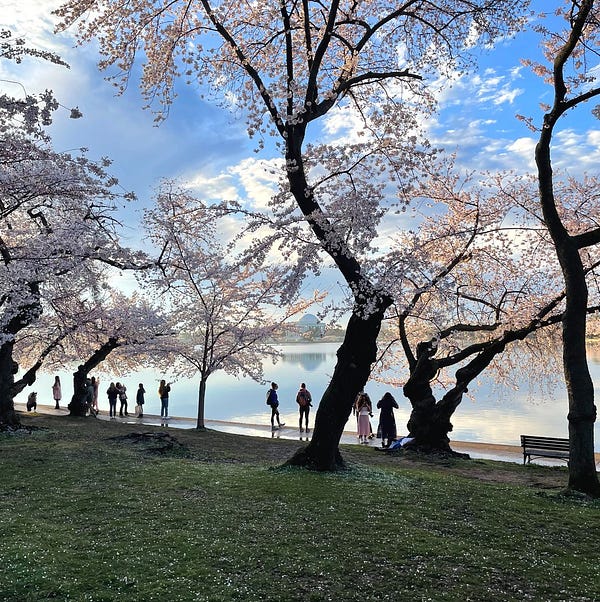"What Man Has Made Of Man"
Journalists are taught to put the most important information in the lede, that topic sentence or paragraph that sets up an article. By that standard, this effort is already a failure.
For justification to try something a bit different, however, I turn to the late longtime New York Times columnist William Safire. I first met Bill back in the Nixon-Agnew White House, where he was a speechwriter. He later provided commentary at CBS News, and even though we disagreed on a lot of things, I grew to like him, and I believe he, me. I think back to how different those times were in our political discourse.
Well, Bill wasn’t shy about sharing his views, and that tendency extended to offering advice about how to read a newspaper column. (In so doing, he was perhaps offering a wink at those who wish to write them.)
“Never look for the story in the 'lede.' Reporters are required to put what's happened up top, but the practiced pundit places a nugget of news, even a startling insight, halfway down the column, directed at the politiscenti. When pressed for time, the savvy reader starts there.”
(Safire’s admonition came in one of the final pieces he wrote for The Times, titled “How to Read a Column,” which is still very much worth a read as long as you don’t use it to judge this one too harshly.)
So in the spirit of Safire, I am moving up something I had intended to put much farther down.
It might seem odd to begin a consideration of the war in Ukraine, and how it echoes the dangerous divisions we are witnessing here in the United States (the ultimate subject of this Sunday essay), with a poem about spring from William Wordsworth.
It’s the kind of thing that if you have the gall to include at all, you would try to safely tuck away toward the end of the column, once you have explained it and set it up with all the necessary context. And you would probably just pull a quote rather than printing the full poem. But for better or worse, that’s not the Steady way. We are all among friends here, right? So let’s give it a try, because it builds to one of the most haunting questions in verse, a question that reverberates in the tragedies of our current age.
"Lines Written in Early Spring," by William Wordsworth
I heard a thousand blended notes,
While in a grove I sate reclined,
In that sweet mood when pleasant thoughts
Bring sad thoughts to the mind.To her fair works did Nature link
The human soul that through me ran;
And much it grieved my heart to think
What man has made of man.Through primrose tufts, in that green bower,
The periwinkle trailed its wreaths;
And ’tis my faith that every flower
Enjoys the air it breathes.The birds around me hopped and played,
Their thoughts I cannot measure:—
But the least motion which they made
It seemed a thrill of pleasure.The budding twigs spread out their fan,
To catch the breezy air;
And I must think, do all I can,
That there was pleasure there.If this belief from heaven be sent,
If such be Nature’s holy plan,
Have I not reason to lament
What man has made of man?
That last line has echoed in my mind recently. Have we not all reason to lament what man has made of man?
Amidst the beauty of our natural world, we see humans wreak death and destruction for no purpose but the misguided pursuit of glory and ego. We see good people attacked by those cynically using vitriol to gather political power. We see wealth hoarded while so many go hungry. And we see the balance of our Earth thrown off-kilter by our short-sighted actions to a degree Wordsworth never could have imagined. It is not only what man has made of man, but what we have made of our precious planet.
As we welcome spring, a season that always builds stirrings of hope in mind and heart, the tension that Wordsworth so deftly expressed is everywhere. Let us think of the symbol of Ukraine, the bright yellow sunflower. It brings such color and beauty to our world — such a stark contrast to the mounds of eviscerated rubble in Mariupol and the death and suffering they represent.
The cherry blossoms are in full bloom in Washington, D.C. They bring an ethereal sense of wonder to the city, as families, couples young and old, and solitary strollers gather to admire the lush budding branches:





And yet this same city has seen such ugliness on display. That has been depressingly obvious in the confirmation hearings for Ketanji Brown Jackson at the Capitol, the same building that was the stage for a violent insurrection.
We must note, however, that Wordsworth lived before the age of modern science. He didn’t know how intertwined we are in our biological makeup to the rest of life. We sit not apart from nature, but amidst it. And nature itself is not simply unadulterated beauty or tranquility. The coronavirus represents nature. So too do the ravages of natural disasters. From the perspective of a wildebeest running for its life from a lion, nature isn’t very pretty.
And in this reality, we can perhaps also find hope. We can begin by expanding the framing to what humans have made of humans, or even more optimistically, what humans have done for humans. For as much pain and suffering as I have witnessed in my career as a reporter, I have seen many more actions of heroic kindness and decency.
The stories out of Ukraine are heartbreaking, but think of all those putting their own lives at risk to help others. The people going into the rubble to pull out survivors, even as bombs continue to fall. The farmers who continue to plant in the breadbasket of Europe, even as war rages around them. The neighboring countries helping millions of men, women, and so many children who are fleeing for their lives with little more than the clothes on their backs.
Around the world, there has been an outpouring of support for the Ukrainian people. The stirring chords of the Ukrainian national anthem seem to be everywhere, a defiant pushback to forces of darkness and death:

Meanwhile, back in Washington, we can admire the steadfast resolve of Judge Jackson and her unwavering faith in this country and the rule of law. Her testimony about how she got to this moment, of those who helped along the way, is also an inspiring tribute to what humans can do for humans.
I particularly love this picture of her husband and daughter looking on — and from the likes on Twitter, I can tell I wasn’t the only one. That the picture was taken by Sarahbeth Maney, a young Black woman, makes it all the more meaningful:
We can think of our fellow humans in the sciences who produced vaccines for Covid in record time. We can think of the engineers developing new alternative energies. We can think of the social workers, librarians, teachers, nurses, bus drivers, custodians, park rangers, and many others who provide services large and small, public and private, in the past, the present, and the future.
Ultimately, I like to believe in a conspiracy of decent people. I have lived long enough to know that the past isn’t as glorious as we would like to believe. In many ways, and for many people, it was far less just. On a global scale, our misery index, when measured for such suffering as hunger and infant mortality, has diminished.
We can learn from what worked in the past, but progress means going forward. Sometimes a snapshot of a moment of time, whether our own or that spring day from two centuries ago that inspired Wordsworth, can be misleading. We are not frozen in any one instant. Yes, we need to stop and think about what we do to each other. We need to recognize and confront the horrors that face us. But every bracketing of the present will invariably proceed into the future.
Time marches in one direction. We can’t stop it, but we can help shape it. Each human act of support to others is one that helps heal our world. Even now, with so much anxiety and chaos destabilizing our country and beyond, we can grip firmly onto what is good and just and use it to steady ourselves for the work to be done.




"A conspiracy of decent people" is the perfect description of what you have built here with Steady. Thank you!
Like Poppiwinkle, I thank you for the poem, the thought provocations, the amazing singing from the Met---OMG, tears streaming down my face still, and the glimmers of hope that we won't annihilate ourselves and the planet, and a sliver of hope that "all shall be well, all shall be well, all manner of thing shall be well." It feeds my heart and soul to be connected to all the good people who are inspired by you and Steady. A true conspiracy of decent people.